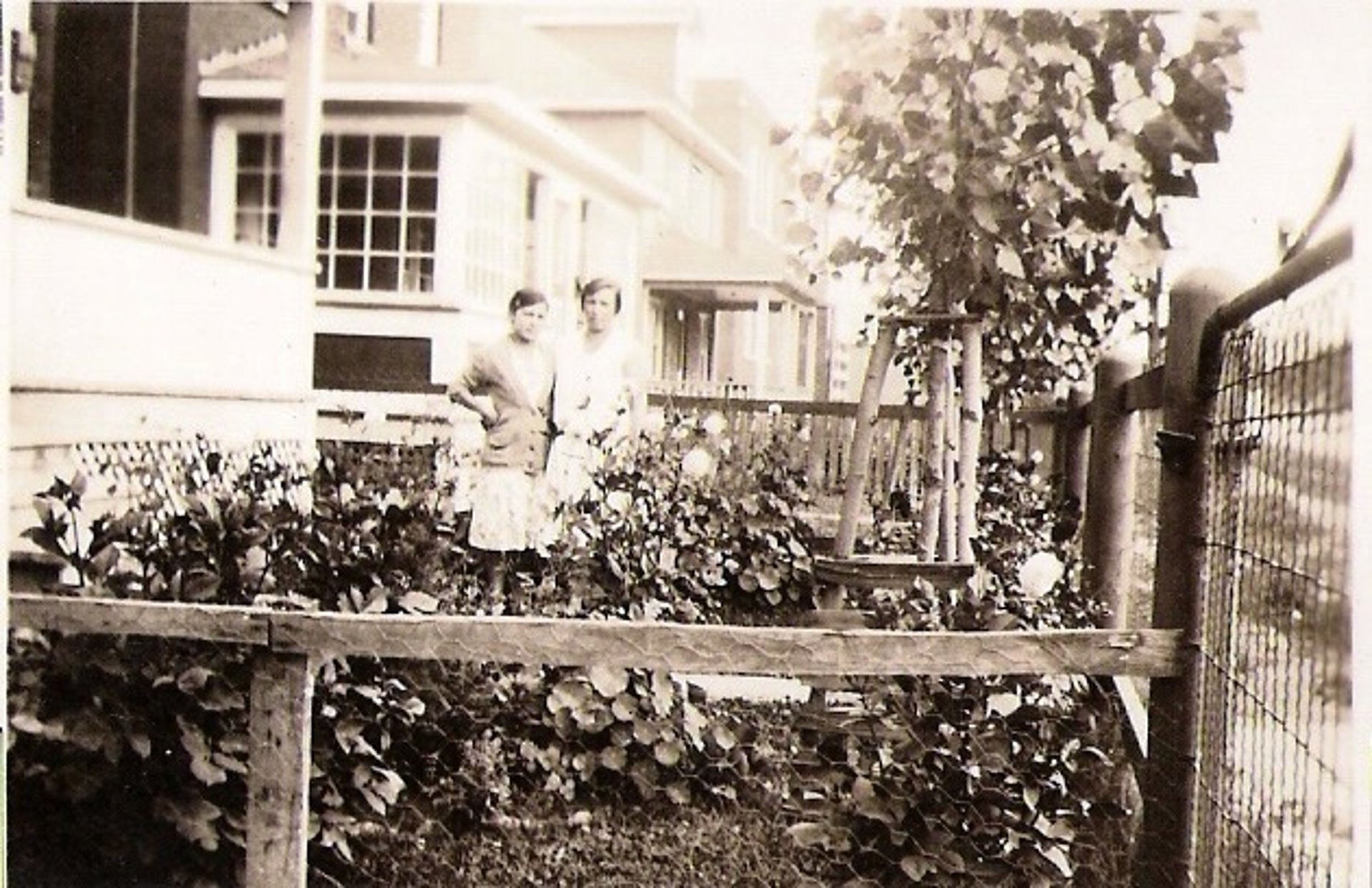
Mary Evanshen and Olga Dubinsky in Boarding House Garden, 1930. Credit: Nick Evanshen
While Sudbury’s Ukrainians were engaging in public confrontations to solidify their differences, they were also struggling to make ends meet in their private domestic spaces. The Depression was a common economic challenge, which cut across the community’s divisions. In order to survive, Ukrainian fathers and their sons assumed breadwinning roles while Ukrainian mothers and their daughters undertook those roles that were accorded to housewives. Significantly, mothers also became important financial providers, subsidizing the family economy by taking in boarders, bootlegging, gardening, and farming.
Baba’s memories about the 1930s serve as a window into understanding these roles and survival strategies. When her father’s shifts were cut back at the International Nickel Company’s Frood Mine, her mother tried to make ends meet through the family’s boarding business. Many of the boarders however could not pay their bills and so Baba’s family eventually lost their home and business because they were unable to make the monthly mortgage payment. Fortunately, Baba’s family had another home into which it could move. Other Ukrainian men and women had similar experiences. Whether they were Catholic, Orthodox, progressive, or nationalist, most, as this web of stories makes clear, went to great lengths to make ends meet during this period; this was a common immigrant challenge that was often made worse by the economic crash.
These audio clips coincide with the stories told in Chapter Four in According to Baba: A Collaborative History of Sudbury's Ukrainian Community.
Baba recalls the Depression and the circumstances that her family faced during this period.
Nick Evanshen discusses his memories of growing up in a large boarding house.
William Semenuk remembers how a number of his father’s friends cared him and his siblings after his mother died.
Vera Babuik (nee Havrachysky) remembers her parents trying to get relief and how they managed to make due during the Depression.
Tom Zaitz recounts his family’s Depression-era experiences.
Mary Zawierzeniec (nee Nykilchyk) remembers her mother, the food she would make, and the chores she would do.
Nick Solski recounts his family’s Depression-era experiences and what it was like to be on relief in Coniston.
Walter Chmara speaks about the credit his father extended to Sudburians and the debt that the family’s general store in Coniston accrued over time.
William Babij recalls how his family was on relief for part of the Depression.
Peter Chitruk talks about his mother’s bootlegging business and some of her run-ins with local police officers.
Pauline Kruk (nee Mykoluk) speaks about her mother’s boarding business and how one boarder helped her parents during the Depression.
Joseph Maizuk shares his memories of getting through the Depression in Coniston.
Oryst Sawchuk speaks about his mother’s boarding business.
Anne Matschke (nee Kuchmey) recounts the conditions in her family’s boarding house.
Nick Evanshen discusses the relationship that he had with two boarders.
Charlie Rapsky remembers how his family helped another Ukrainian family that was struggling to make ends meet during the Depression.
Nellie Kozak (nee Tataryn) speaks about the gender roles in her family’s boarding house.
Tom Zaitz shares his memories about blueberry picking during the 1930s.
Mary Brydges (nee Ladyk) remembers her mother’s boarding business and her role as a sandwich-maker.